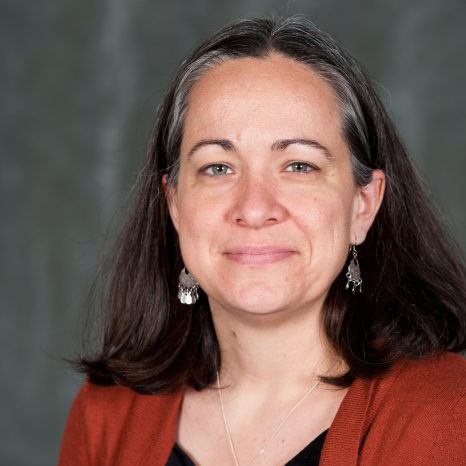The Georgetown University School of Foreign Service named professor Lahra Smith as the new director of the African Studies Program. Smith hopes to bring an environmentalist perspective to the department as well as strengthen ties to the continent amid the pandemic.
Smith has been a fixture of Georgetown’s African Studies department for 14 years and has studied the subject since her undergraduate days at University of New Hampshire, according to the Oct. 1 announcement. She also serves as an associate professor in the government department, a research fellow at the Institute for the Study of International Migration and a faculty fellow for African migration at the Center for Social Justice.
Smith takes over the directorship from professor Scott Taylor, Georgetown University’s new vice dean of diversity, equity and inclusion. The African Studies director position had been left vacant since Taylor assumed his new role Aug. 15.

Smith considers the African Studies Program an interdisciplinary field ripe with opportunities for students to explore subjects of interest.
“I think it’s the jewel of the university, and I also think Africa is such an important continent to study, so it’s such an honor to be part of it,” Smith said in an interview with The Hoya. “It’s a really youthful continent, and that means that there’s a lot of connections between the things that our students are interested in and young people on the continent.”
Smith’s involvement with the African Studies Program through both her research and teaching qualified her for the directorship, according to SFS Dean Joel Hellman.
“To some extent, she was a natural choice because she had already been so deeply engaged in the program and beloved by the students who are part of it,” Hellman said in an interview with The Hoya.
Another of Smith’s goals for the African Studies Program is to bring students to a greater number of African countries once travel restrictions are lifted. Before the COVID-19 pandemic, the program typically sent students to Africa on a number of yearly trips, including a spring break trip to Kenya, summer trips to Tanzania and South Africa and a biannual summer research program in Zambia.
While Smith and her colleagues in the African Studies Program intend to leverage technology to communicate with associates in Africa under the current restrictions, Smith remains focused on organizing opportunities to travel to Africa as soon as possible.
“Africa, as a continent, has had the lowest COVID-19 rates, and not just for the first couple of months, but continually. We hope that if and when opportunities to travel come up, Africa would actually be at the top of the list of places to travel to. That’s something that, as the director, I’ll be pressing very hard for,” Smith said.
Smith is also examining the program’s curriculum to expand the lenses and disciplines through which students and professors examine Africa. She particularly hopes to incorporate environmentalist perspectives into African Studies.
“What I would love to see more is the environment. We can have more course offerings, more programs about this, because this is obviously hugely impacting the continent, and our students are also very engaged in climate change and environmental issues,” Smith said.
Taylor shared Hellman’s enthusiasm for his successor, noting not only Smith’s credentials but also the new perspective she brings to the program.
“It’s good to bring in fresh thinking, ideas and energy into our institutions, and Prof. Smith brings all of that. She is also an accomplished scholar and teacher of African politics and African affairs more broadly,” Taylor wrote in an email to The Hoya. “She has long been a valued and active member of the African Studies faculty, and I have every confidence she’ll take the program to new heights.”
Hellman agreed with Smith about the importance of the program, and he said the study of Africa is a key component of the SFS’ push for diversity, equity and inclusion.
“The call to action for the SFS is broader than the American story because it is designed to say that we have to understand that international affairs are heavily impacted by racism and inequity and injustice,” Hellman said. “The story of colonialism, of the subjugation of the African continent, the depletion of natural resources: all these things are vital in understanding global affairs, and so Africa plays a very important role.”
The current sociopolitical climate, particularly the rise in anti-racism movements in the United States, means the African Studies Program bears an increased responsibility to pursue racial justice in the realm of academia, according to Smith.
“We feel people who study African Studies often do and should take up questions of race centrally to their work, regardless of who they are,” Smith said. “For me, thinking of histories of race, racism and colonialism have always been part of how I’ve studied African Studies, but the urgency of the moment, I think, provides us the opportunity to think about those connections even more.”
Taylor said the African Studies Program has long served as an example for other programs in the university in its anti-racism efforts.
“We’ve long included authors of color on our syllabi, as well as presented diverse viewpoints. Moreover, African Studies has one of the most ethnically and racially diverse faculties in any unit in the university,” Taylor said.
Both Taylor and Smith envision increased collaboration between the African Studies Program and the Initiative on Diversity and Inclusiveness. The two programs hosted a series on Race and Racism in Africa and the Middle East that began last month in collaboration with the Center for Contemporary Arab Studies.
Smith urged students and groups to contact her to build relationships with organizations across the university.
“I would love to hear feedback now that I’m in this new position from various student organizations, various constituencies,” Smith said. “If they have ideas of how they see that we can interact with their program or student organization, they’re welcome to just email me, and I would love to meet with them.”




















